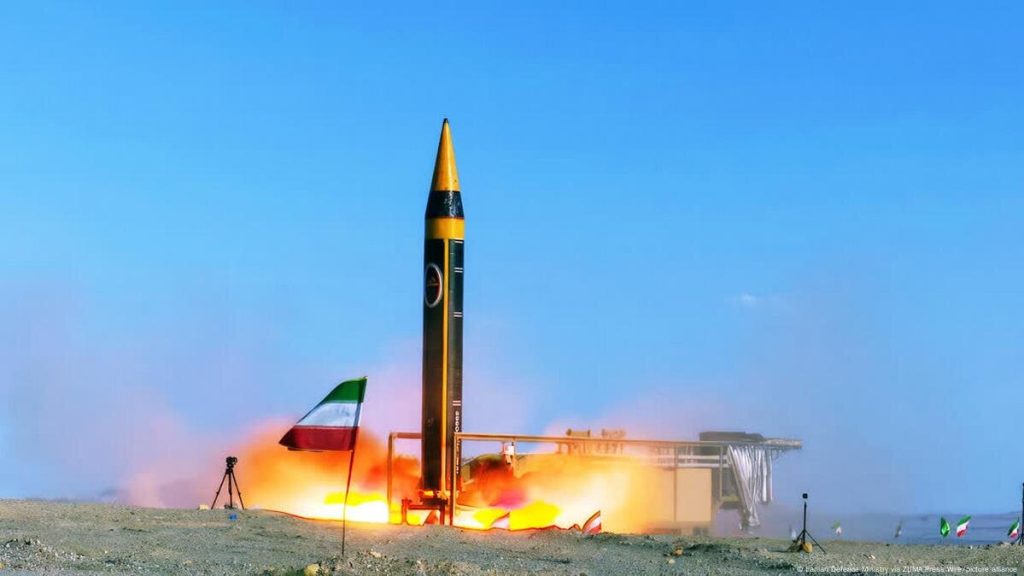
In an escalation of tensions in the Middle East, Iran has launched multiple missile strikes towards Israel, further intensifying a long-standing conflict that has rippling effects across the globe. These attacks are believed to be in retaliation for Israel’s recent military actions and the assassination of key Iranian allies such as Hezbollah leader Hassan Nasrallah. As tensions reach a boiling point, global attention is fixated on the possible outcomes of this aggressive move and the geopolitical ramifications that follow.
This blog will provide an in-depth analysis of the incident, potential global reactions, and why this conflict could lead to one of the most dangerous escalations in years.
Timeline of Events: Iran’s Missile Attack on Israel
On October 1, 2024, Iran fired multiple missiles toward Israel, targeting key cities like Tel Aviv and Jerusalem. The attacks come in response to Israel’s involvement in the killing of Hezbollah leader Nasrallah and other Iranian military commanders. According to Iranian media, these strikes aim to retaliate against Israeli actions in the region, and the Iranian Revolutionary Guard Corps (IRGC) has threatened further attacks if Israel retaliates.
Residents in Israel were alerted through air raid sirens, and many sought shelter as explosions were heard across Tel Aviv and Jerusalem. Initial reports suggest that Israel’s Iron Dome defense system intercepted many of the missiles, although some struck non-military targets.
Why This Escalation Matters: Geopolitical Consequences
This missile exchange could significantly reshape the dynamics of the Middle East and beyond. Here’s why:
- U.S. Involvement and Global Reactions: Shortly after the attacks, the United States vowed to assist Israel in defending itself, with President Biden authorizing the U.S. military to intercept Iranian missiles targeting Israel. This move signals the potential for direct American involvement, which could further complicate U.S. relations with Iran, Russia, and other global powers.
- Potential for Regional War: Iran’s threats to continue missile strikes if Israel retaliates could lead to a full-scale war. Iran’s proxy groups, such as Hezbollah and Hamas, could also become more involved, creating a larger conflict that might drag neighboring countries like Lebanon, Syria, and Iraq into the fray.
- Impact on Global Markets: The Middle East is a vital hub for global oil and gas supplies, and any prolonged conflict could severely impact energy prices. Financial markets worldwide are already reacting to the uncertainty, with investors concerned about the stability of supply chains and the risk of a broader war that could destabilize the region for years to come.
Expected Global Search Trends in the Coming Hours
As news of the Iranian missile strikes against Israel continues to spread, the following search queries are expected to rise sharply:
- “Iran fires missiles at Israel October 2024”: People seeking breaking news updates on the conflict.
- “Israel Iran conflict escalation”: Interest in how the conflict is expected to evolve.
- “U.S. response to Iran missile attacks”: Queries on the role the U.S. is playing in defending Israel.
- “Middle East conflict impact on oil prices”: Global interest in how this conflict will affect energy markets.
- “Iran retaliation for Nasrallah assassination”: Those following the reasons behind Iran’s attack will seek more information on Hezbollah and Hamas’ involvement.
- “Iron Dome missile interception success”: Readers will want to know how effective Israel’s defense system has been during these attacks.
What’s Next: Could This Lead to a Larger Conflict?
The immediate future of this conflict hinges on how Israel and its allies respond to Iran’s missile strikes. Here are some potential developments:
- Israel’s Military Retaliation: Given Israel’s historical response to attacks, it’s likely that the country will retaliate. However, the scope of its military response remains to be seen. Should Israel choose to launch a larger-scale military operation against Iran, it could trigger further aggression from Iran and its regional allies.
- U.S. and NATO’s Position: The United States has already pledged support for Israel. Any prolonged conflict could see the involvement of NATO, especially if Iran’s aggression escalates further. This would increase the risk of a full-scale war in the region, potentially involving other global powers like Russia and China.
- Diplomatic Efforts: While military action is a likely short-term outcome, many in the international community are calling for diplomatic solutions. Efforts by the United Nations, European Union, and other global institutions will be critical in preventing this crisis from spiraling out of control.
How to Stay Informed
In situations like this, staying updated is crucial. Here are a few ways you can keep track of the evolving conflict:
- Live News Feeds: Major news organizations like BBC, CNN, and Al Jazeera provide minute-by-minute updates on the conflict.
- Social Media: Follow official government accounts, military updates, and journalists on platforms like Twitter for the latest information.
- Local News Channels: If you are in the region, local news stations will offer real-time updates and safety instructions.
Conclusion: A Moment of Uncertainty
The missile exchange between Iran and Israel marks a critical moment in Middle Eastern geopolitics. With the potential for broader conflict looming, global attention is fixated on the region. As both nations prepare for possible escalations, the world watches closely to see how this crisis unfolds.
For those closely following the situation, the best course of action is to stay informed through credible news sources and be prepared for the potential long-term impact of this conflict on global politics, energy markets, and international relations.